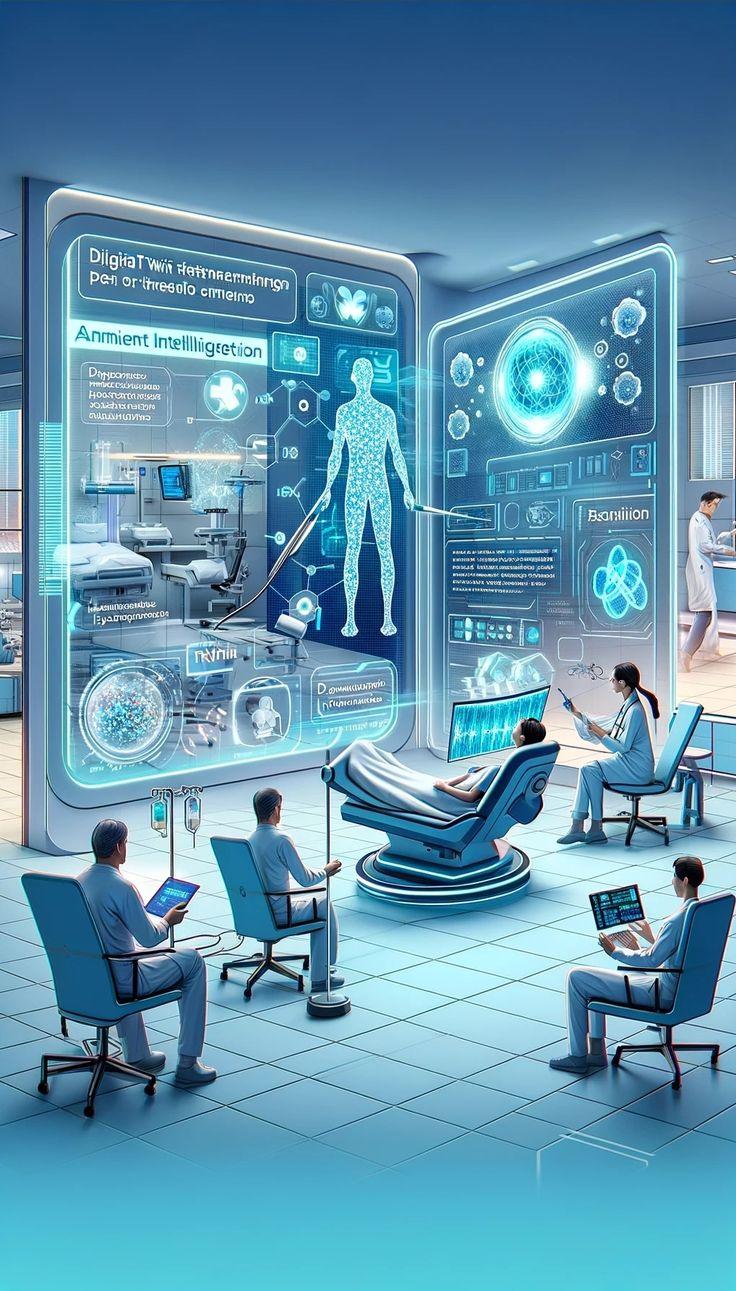In a world characterized by rapid technological advancement, the healthcare sector stands at the forefront of innovation, continuously striving to enhance patient care, streamline processes, and improve outcomes. As we navigate the complexities of modern healthcare, it becomes increasingly evident that the future of medicine lies in the convergence of cutting-edge technology and compassionate care. From artificial intelligence (AI) and telemedicine to wearable devices and personalized medicine, the landscape of healthcare technology is poised for transformative growth, promising a future where healthcare is more accessible, efficient, and tailored to individual needs.
Artificial Intelligence: Revolutionizing Diagnosis and Treatment
Artificial intelligence has emerged as a game-changer in healthcare, offering unprecedented capabilities in data analysis, predictive modeling, and clinical decision support. Machine learning algorithms can sift through vast amounts of medical data, from electronic health records to imaging studies, to identify patterns, detect anomalies, and assist healthcare providers in making accurate diagnoses and treatment recommendations. AI-powered tools are revolutionizing medical imaging, enabling more precise interpretation of radiological scans and early detection of diseases such as cancer and Alzheimer's.
Moreover, AI holds immense potential in drug discovery and development, accelerating the research process and ushering in a new era of personalized medicine. By leveraging AI algorithms to analyze genomic data and predict patient responses to specific therapies, healthcare professionals can tailor treatments to individual genetic profiles, optimizing efficacy and minimizing adverse effects.

Telemedicine: Bridging Gaps in Access and Care
The rise of telemedicine represents a paradigm shift in healthcare delivery, breaking down geographical barriers and expanding access to medical services for individuals across diverse populations. Through virtual consultations, remote monitoring, and telehealth platforms, patients can receive timely medical advice, access specialist expertise, and manage chronic conditions from the comfort of their homes.
Telemedicine not only enhances convenience and affordability but also plays a crucial role in improving healthcare outcomes, particularly in rural or underserved areas where access to healthcare facilities may be limited. Furthermore, telemedicine has proven invaluable during public health crises such as the COVID-19 pandemic, enabling continuity of care while minimizing the risk of viral transmission.
Wearable Devices and Remote Monitoring
The proliferation of wearable devices, such as smartwatches, fitness trackers, and biosensors, has empowered individuals to take control of their health and well-being through continuous monitoring and real-time feedback. These devices can track vital signs, activity levels, sleep patterns, and other health metrics, providing valuable insights into overall health status and potential risk factors.
By integrating wearable technology with healthcare systems, healthcare providers can remotely monitor patients with chronic conditions, detect early warning signs of health deterioration, and intervene proactively to prevent adverse events. Wearable devices also facilitate patient engagement and adherence to treatment plans, fostering a collaborative approach to healthcare management and promoting healthy lifestyle behaviors.

Personalized Medicine: Tailoring Treatment to Individual Needs
Personalized medicine represents a shift from the traditional one-size-fits-all approach to healthcare toward a more individualized and targeted model of treatment. By leveraging advances in genomics, proteomics, and molecular diagnostics, healthcare professionals can identify genetic predispositions, biomarkers, and therapeutic targets that inform personalized treatment strategies.
Through precision medicine initiatives, patients can benefit from therapies that are specifically tailored to their genetic makeup, disease subtype, and unique physiological characteristics, maximizing therapeutic efficacy and minimizing the risk of adverse reactions. Personalized medicine holds promise across a wide range of medical specialties, from oncology and cardiology to neurology and psychiatry, revolutionizing how we approach disease prevention, diagnosis, and treatment.
Conclusion: Embracing a Technological Renaissance in Healthcare
As we stand on the cusp of a technological renaissance in healthcare, the future holds boundless possibilities for innovation, collaboration, and transformation. By harnessing the power of artificial intelligence, telemedicine, wearable devices, and personalized medicine, we can create a healthcare ecosystem that is more responsive, equitable, and patient-centered.
However, amidst the excitement of technological advancement, it is essential to recognize the importance of preserving the human touch in medicine – the empathy, compassion, and interpersonal connection that define the art of healing. Ultimately, the future of healthcare technology is not merely about machines and algorithms but about empowering healthcare professionals, engaging patients, and improving lives. As we navigate the complexities of tomorrow's healthcare landscape, let us embrace innovation with humility, empathy, and a steadfast commitment to advancing the health and well-being of all individuals.
In conclusion, the future of healthcare technology holds immense promise for revolutionizing patient care, improving outcomes, and enhancing the overall quality of life. By embracing innovation, collaboration, and compassionate care, we can shape a future where healthcare is more accessible, personalized, and impactful than ever before.








